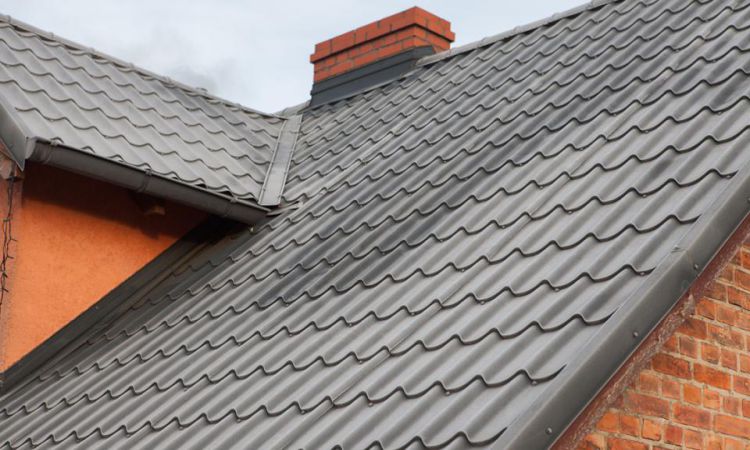 Choosing the right roofing material for your home or business is an important decision. Not only does it affect the aesthetics of your building, but also its curb appeal and energy efficiency. Different types of roofing materials come with their own advantages and drawbacks depending on a variety of factors such as local climate, budget, and desired features.
Choosing the right roofing material for your home or business is an important decision. Not only does it affect the aesthetics of your building, but also its curb appeal and energy efficiency. Different types of roofing materials come with their own advantages and drawbacks depending on a variety of factors such as local climate, budget, and desired features.
To help you select the best type of roofing material for your needs, we’ve put together some advice from a licensed contractor below.
Table of Contents
Asphalt Shingles:
Asphalt shingles are one of the most popular roofing materials due to their affordability and easy installation process. They offer good durability in most climates and can last up to 25 years before needing to be replaced. On top of that, they come in a variety of colors and styles to suit different tastes. However, they fare poorly in severe weather conditions like heavy winds or hail and may require more frequent repairs. Asphalt shingles are the most popular residential roof type in the United States. They come in two varieties: organic or fiberglass-based asphalt shingles. The main benefit of asphalt shingles is that they are affordable and easy to install. Additionally, they are relatively lightweight and can be applied over existing roofing materials. However, asphalt shingles do not last as long as other materials and require more frequent maintenance than some of the other options.
Clay Tile:
While clay tile is more expensive than asphalt shingles, it’s also much more durable and can last up to 50 years with proper maintenance. It offers great energy efficiency as well since its dark surface absorbs heat from the sun during the day and releases it at night. Additionally, clay tiles are resistant to fire, insects, and rot so you don’t need to worry about any damage caused by these elements. The downside is that it’s quite heavy so your roof structure needs to be designed accordingly if you want to install them. Clay tile is another popular choice for homeowners looking for a stylish and durable roof. Clay tile is made with natural clay and provides excellent temperature control inside the home as well as protection from water damage. However, these tiles are heavier than other materials and cost more to install. Additionally, they require special installation techniques and can be prone to cracking in areas that experience extreme temperatures or freeze-thaw cycles.
Metal Roofs:
Metal roofs are becoming increasingly popular due to their great durability and long lifespan of up to 70 years. They’re also energy-efficient and offer fire protection. The greatest disadvantage is that they can be quite noisy in the rain or hail, although that can be reduced with sound-deadening insulation. Additionally, they require professional installation which drives up the cost. When it comes to durability, metal roofs take the cake. Metal roofs come in several varieties such as steel, aluminum, copper, and zinc. They offer superior protection against water damage and have a much longer lifespan than asphalt shingles. While metal roofs are initially more expensive to install than other materials, they will save you money in the long run with their longevity and energy efficiency benefits.
Slate:
If you’re looking for a timeless look on your roof, slate might be the right material for you. Slate roofs have been around since the ancient Romans used them over two thousand years ago! They offer superior fire resistance, durability, and energy efficiency benefits. Unfortunately, slate is also one of the most expensive materials available and requires more maintenance than other materials due to its weight and fragility.
As per the experts from Burr Ridge Roofing of Burr Ridge, the right choice of roofing material is essential to ensure that your home is protected from the elements. Different types of materials have different benefits and drawbacks, so understanding what’s available and which one will work best for you can be tricky.
To help make informed decisions about your roofing needs, here’s a rundown of some common roofing materials used by contractors today, as well as their associated pros and cons.
Conclusion:
No matter which roofing type you decide on, make sure to do your research before committing to a material. Consider the cost, weight, longevity, fire resistance, and energy efficiency benefits of each type before making a decision. Additionally, be sure to consult with an experienced contractor like us who can inspect your home’s existing structure and provide recommendations on what will work best for you. With our team’s help, you can ensure that your roof is ready for anything!






